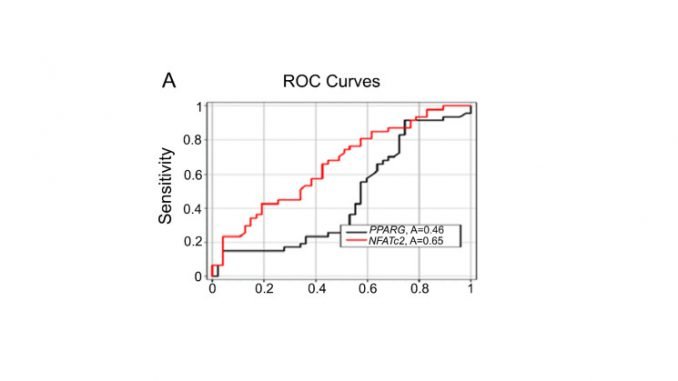
Colorectal cancer is one of the most prevalent and lethal disorders worldwide. There is an increseas in its incidence during the last two decades. Besides the environmental contributing factors, genetic variations are also responsible for occurrence of this cancer. Approximately 10% of cases originate in various hereditary disorders.
Previous studies have shown that various gene expression levels and gene activation were useful as prognostic factors in digestive system related cancers, especially in the colorectal cancer.
Despite the impressive achievements in treatment, especially with chemotherapy, colorectal cancer death rates are still increasing. Recently, many studies focused on cancer molecular markers to for better understanding of the malignant transformation mechanisms and biomarkers to predict the response to chemotherapy in each individual patient.
Our study was designed to specifically evaluate PPARg and MFATc2 gene expression level to investigate their usefulness in diagnostics of colorectal cancer. We performed a case-control study on 50 colorectal cancer tissues and their matched healthy marginal tissues. We studied both genes expression between the two groups and the genes expression level association with clinicophatological patient data.
mRNA expression level of PPARG was not different between cancerous and healthy tissues. However, we found that NFATc2 can be used as an early diagnostic or predictive biomarker for colorectal cancer. It may also be a potential therapeutic target, however more research is necessary to confirm our findings.
Reference:
Zafari V, Hashemzadeh S, Hosseinpour Feizi M, Pouladi N, Rostami Zadeh L, Sakhinia E. mRNA expression of nuclear factor of activated T-cells, cytoplasmic 2 (NFATc2) and peroxisome proliferator-activated receptor gamma (PPARG) transcription factors in colorectal carcinoma. Bosn J Basic Med Sci. 2017 May 15. doi: 10.17305/bjbms.2017.1886. [Epub ahead of print]
Leave a Reply